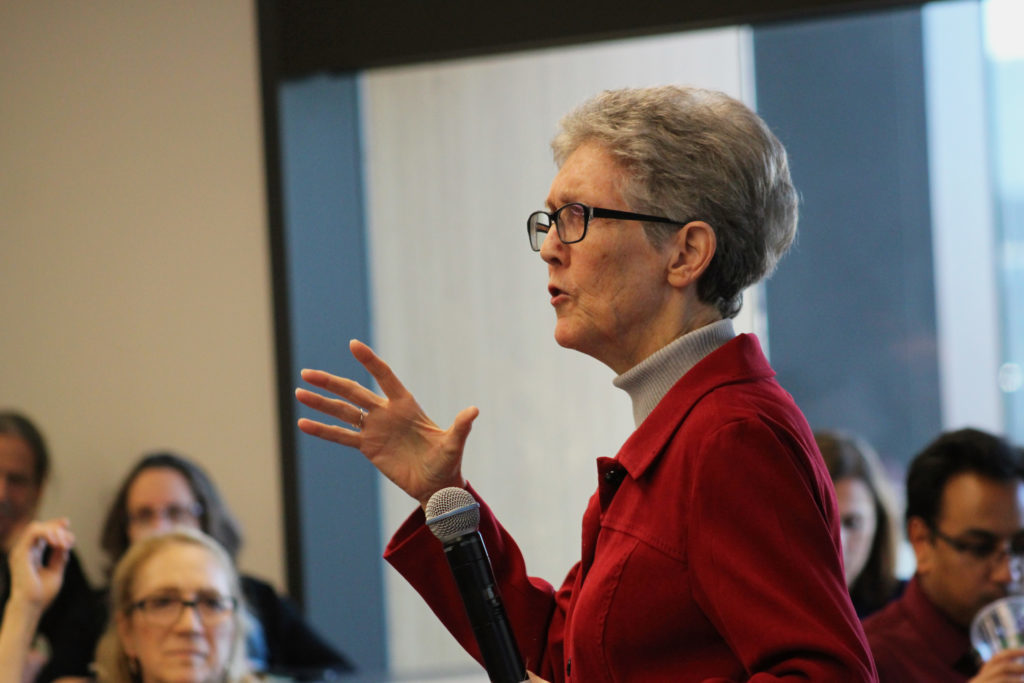Faculty shared their concerns about how officials plan to evaluate graduate programs when making decisions for the University’s next five-year strategic plan at a forum Thursday.
The forum was hosted by one of four faculty committees created by University President Thomas LeBlanc last month to collect feedback and guide the strategic planning process. About 60 faculty and graduate students discussed the role of faculty input and the school’s future market basket in evaluating graduate programs at the meeting, which was led by committee chair Carol Sigelman, a professor of applied social psychology.
Guillermo Orti, a biology professor, said officials should use evaluation methods already in use to judge graduate programs, like academic program reviews. Orti said administrators have “completely ignored” reviews of his department conducted by outside experts.
“I think that those existing mechanisms should be advanced and should be cherished and should be used in more efficient ways,” he said. “They already exist, we don’t have to reinvent the wheel.”
Jennifer Brinkerhoff, a professor of public administration and international affairs, said the process of evaluating graduate programs should be “driven by faculty,” who she said are most attuned to their program’s strengths and weaknesses. She said the process could account for faculty input by having professors submit written proposals making a case for their programs.
“There is a really important role or potential role that self-assessment can play and I think that we shouldn’t rule that out,” Brinkerhoff said.
Scott Powell, an associate professor of biology, said he is concerned that officials have a “set of internal criteria” that does not account for how different departments and schools evaluate success. He added that using faculty proposals to assess programs gives less well-funded programs an opportunity to demonstrate what they could do with more resources.
“There are other programs that have maybe undergone a major transformation in recent years but have maybe been limited by historical asymmetries in resources and kind of chomping at the bit to grow,” he said.
Natalie Milman, a professor of educational technology, said the criteria for evaluating graduate programs need to account for the societal value of the program. She said Graduate School of Education and Human Development programs, for example, “will never contribute” to GW like other programs in terms of alumni donations because GSEHD alumni likely earn less after graduation, but the school’s programs benefit society in other ways.
Katrin Schultheiss, the history department chair, said officials should consider and factor in the decisions that GW’s peer schools have made, but added that those decisions cannot be a primary criterion for evaluating graduate programs because the future of the market for graduate programs is uncertain. She said she thinks LeBlanc tends to view GW as a “vocational training institution” focused on training students for jobs, adding that the University needs to be “in the business of furthering learning.”
Shelley Brundage – the chair of the Department of Speech, Language and Hearing Sciences – said officials should focus more on opportunities near GW resulting from the school’s location in D.C. instead of getting “stuck in” conversations about GW’s peers.
“I don’t want to be Boston University D.C. or University of Miami D.C.,” Brundage said. “I want to be GW D.C.”





